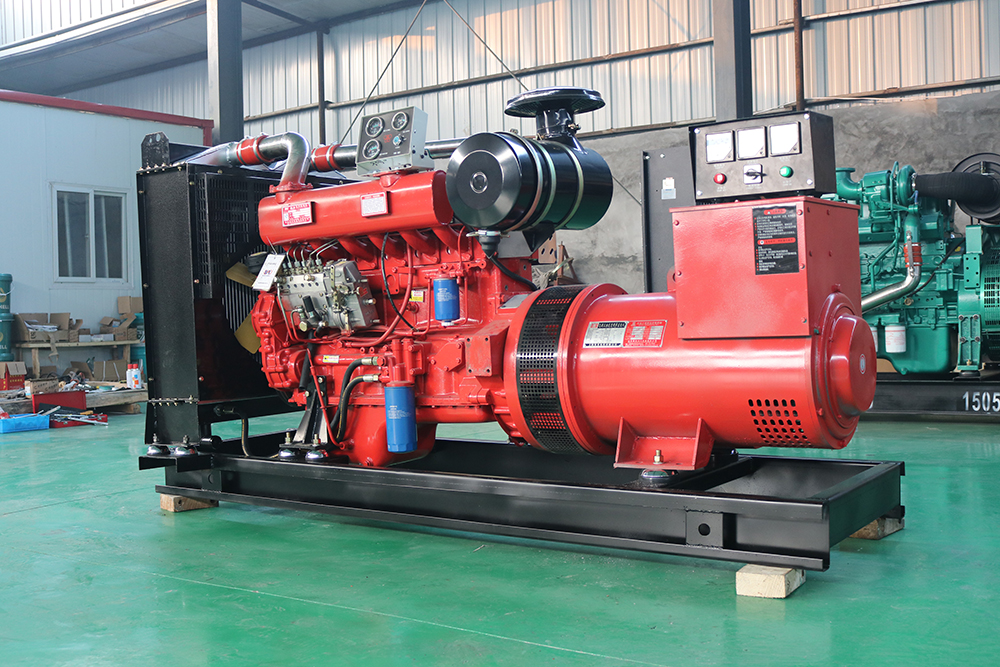Maximizing Fuel Efficiency with Diesel Generators

Introduction
In today's world, where energy consumption is at an all-time high, the need for reliable power sources is more critical than ever. Diesel generators have long been a popular choice for providing backup power in various settings, from residential homes to industrial facilities. One of the key advantages of diesel generators is their fuel efficiency, which allows users to save on operating costs while ensuring a reliable power supply. In this article, we will explore the factors that contribute to the fuel efficiency of diesel generators, as well as best practices for maximizing their performance.
Understanding Diesel Generators
Before delving into the specifics of fuel efficiency, it is essential to understand how diesel generators work. A diesel generator is a type of internal combustion engine that converts diesel fuel into electrical energy. The basic components of a diesel generator include the engine, alternator, fuel system, cooling system, and control panel. When the generator is started, the engine burns diesel fuel to produce mechanical energy, which is then converted into electrical power by the alternator. The generated electricity can be used to power various electrical devices and equipment.
Factors Affecting Fuel Efficiency
Several factors influence the fuel efficiency of diesel generators, including engine design, load capacity, maintenance practices, and operating conditions. Understanding these factors is crucial for optimizing the performance of a diesel generator and maximizing its fuel efficiency.
1. Engine Design: The design of the engine plays a significant role in determining the fuel efficiency of a diesel generator. Modern diesel engines are designed to be more fuel-efficient, with features such as electronic fuel injection systems, advanced combustion technologies, and variable-speed controls. These innovations help to optimize fuel consumption and reduce emissions, making the generator more environmentally friendly.
2. Load Capacity: Matching the load capacity of the generator to the actual power demand is essential for maximizing fuel efficiency. Running a diesel generator at a lower capacity than its rated output can lead to inefficient fuel consumption, as the engine may not be operating at its optimal efficiency. On the other hand, overloading the generator can cause excess fuel consumption and reduce the lifespan of the equipment. It is crucial to size the generator correctly for the intended application to achieve the best fuel efficiency.

3. Maintenance Practices: Regular maintenance is key to ensuring the fuel efficiency of a diesel generator. Routine maintenance tasks, such as changing the oil and filters, inspecting the fuel system, and cleaning the cooling system, help to keep the engine running smoothly and efficiently. Neglecting maintenance can lead to decreased fuel efficiency, increased emissions, and potential breakdowns that may incur costly repairs.
4. Operating Conditions: The operating conditions of a diesel generator also impact its fuel efficiency. Factors such as ambient temperature, humidity levels, altitude, and load variations can affect the performance of the generator. For example, diesel engines may consume more fuel in cold weather due to higher fuel viscosity and increased friction. It is essential to consider these factors when operating a diesel generator to maintain optimal fuel efficiency.
Best Practices for Maximizing Fuel Efficiency
To maximize the fuel efficiency of a diesel generator, users can adopt several best practices that help optimize its performance and reduce operating costs. https://www.lkpowerplant.com/400kw/ include:
1. Regular Maintenance: As mentioned earlier, regular maintenance is essential for ensuring the fuel efficiency of a diesel generator. Following the manufacturer's recommended maintenance schedule, including oil changes, filter replacements, and inspections, can help prevent issues that may affect fuel consumption and performance.
2. Proper Sizing: Choosing the right size of the generator for the intended application is crucial for maximizing fuel efficiency. Oversized generators can lead to excess fuel consumption and higher operating costs, while undersized generators may struggle to meet the power demand efficiently. Conducting a thorough load analysis and consulting with a professional can help determine the appropriate size of the generator for optimal fuel efficiency.
3. Load Management: Efficient load management is key to maximizing fuel efficiency. Avoiding unnecessary idling, reducing idle time, and prioritizing energy-efficient equipment can help minimize fuel consumption. Implementing load shedding strategies during peak demand periods can also help optimize the performance of the generator and reduce fuel costs.
4. Fuel Quality: Using high-quality diesel fuel that meets the manufacturer's specifications is essential for maintaining the fuel efficiency of a diesel generator. Contaminated or low-quality fuel can lead to engine performance issues, increased emissions, and reduced fuel efficiency. Regularly testing and monitoring the fuel quality can help prevent these issues and ensure the smooth operation of the generator.
5. Monitoring and Control Systems: Installing monitoring and control systems on the diesel generator can help track fuel consumption, performance metrics, and operating parameters in real-time. These systems provide valuable data that can be used to optimize the generator's operation, identify potential issues, and make informed decisions to improve fuel efficiency.
Conclusion
In conclusion, diesel generators are a reliable and efficient source of backup power for a wide range of applications. By understanding the factors that affect fuel efficiency and adopting best practices for optimization, users can maximize the performance of their diesel generators while saving on operating costs. Regular maintenance, proper sizing, load management, fuel quality, and monitoring systems are key elements in ensuring the fuel efficiency of a diesel generator. By following these guidelines, users can enjoy reliable power supply, reduced fuel consumption, and a more sustainable energy solution for their needs.
